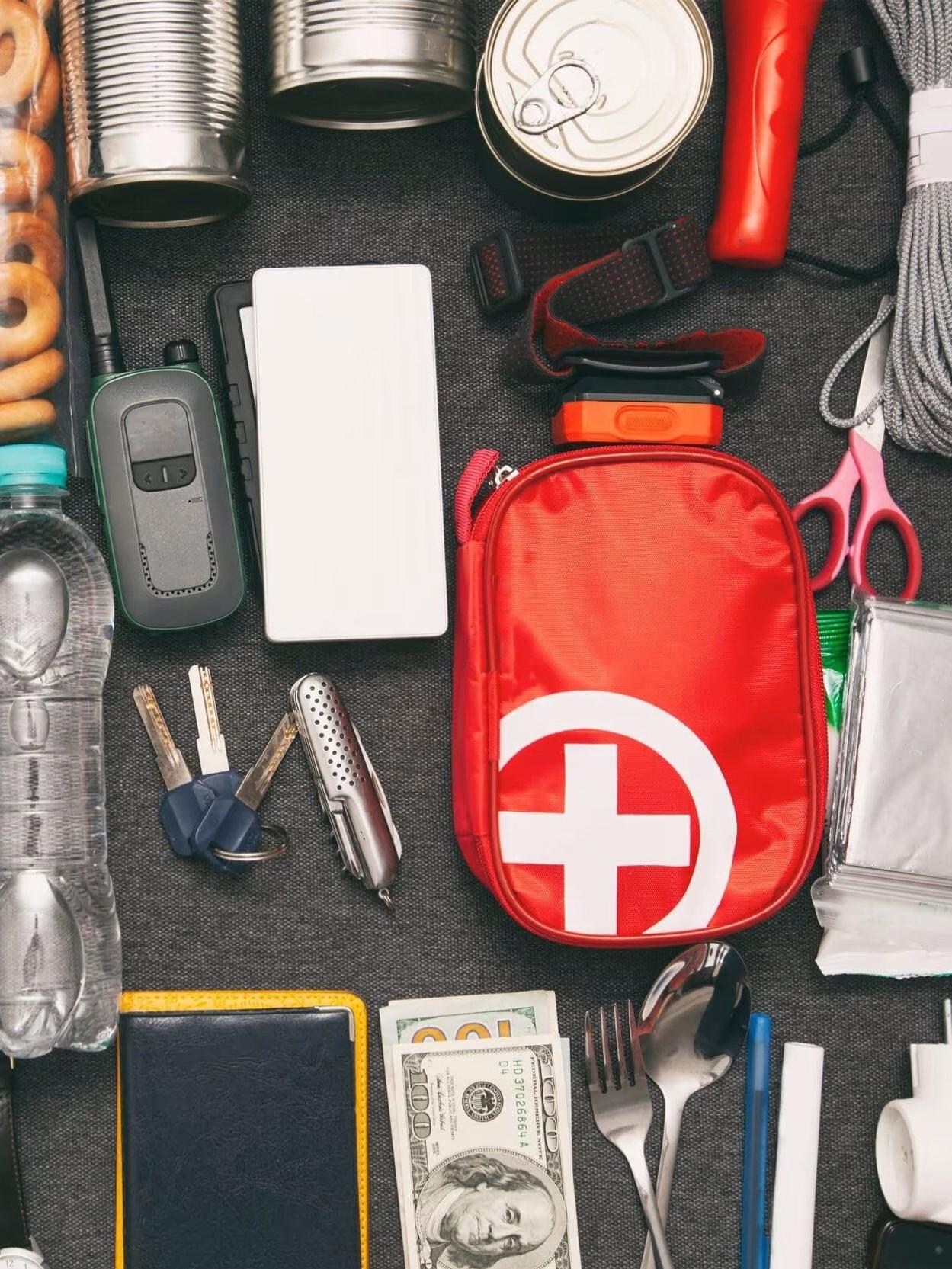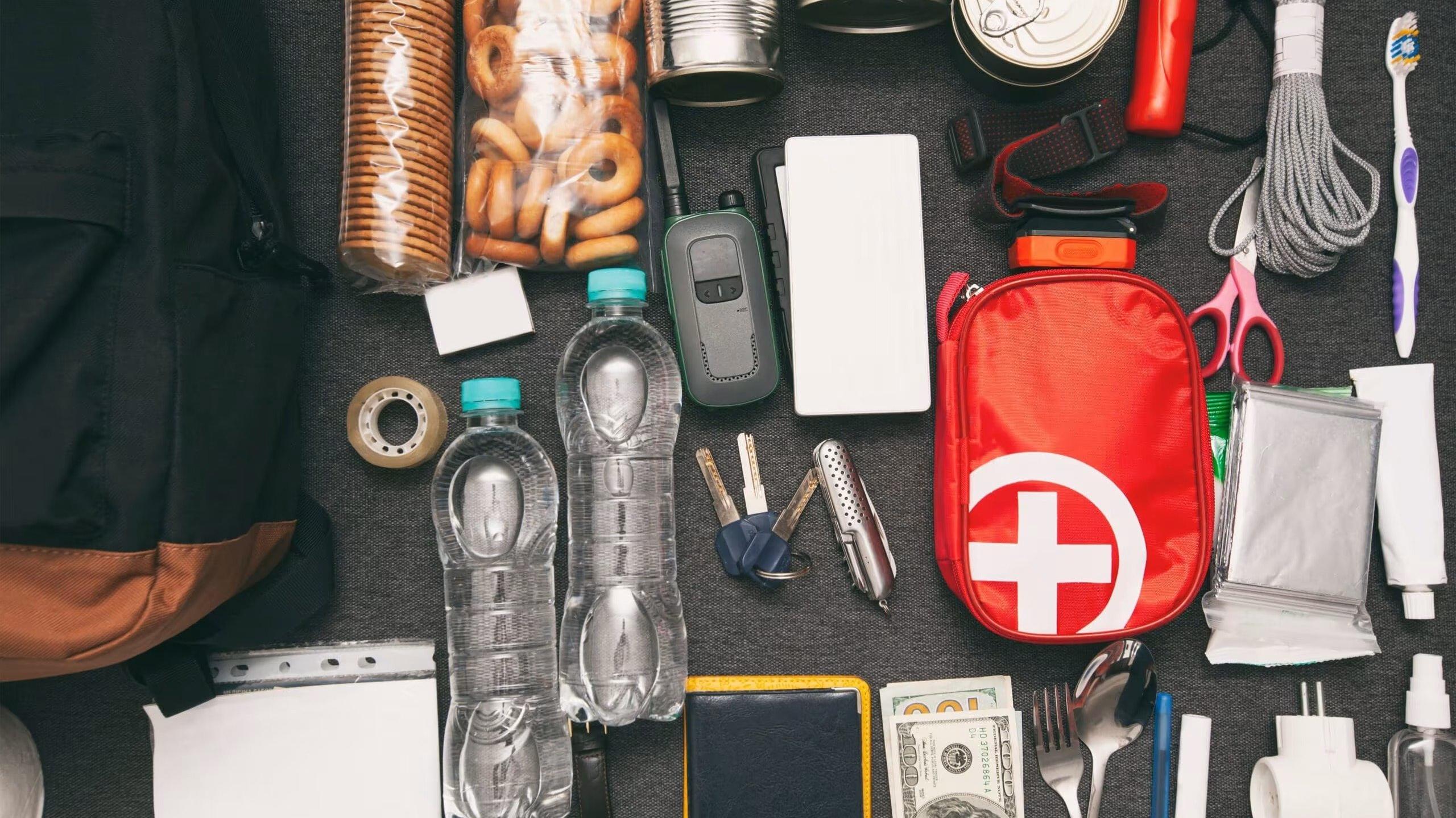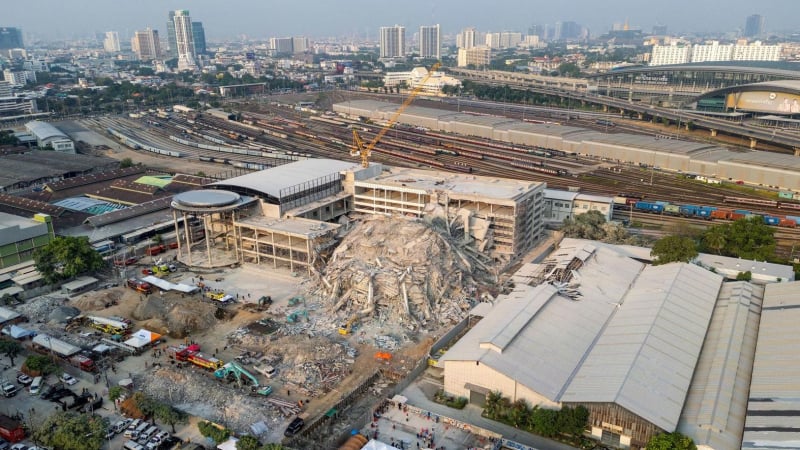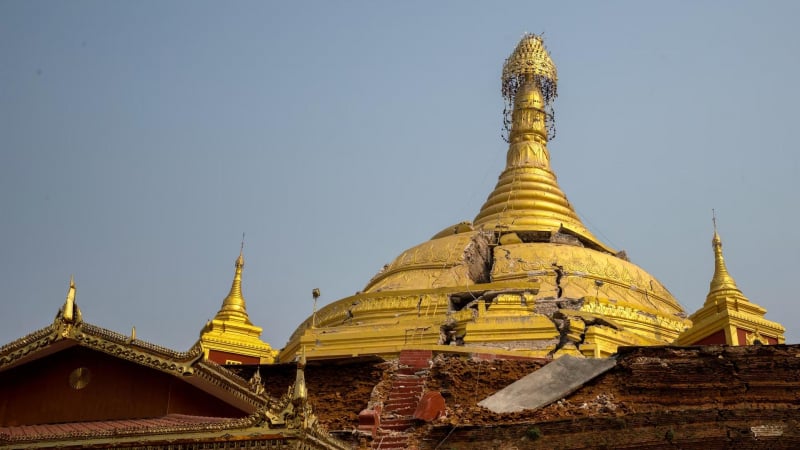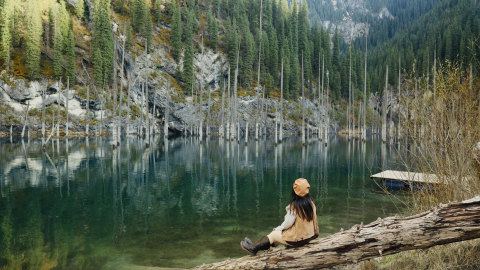The 7.7 magnitude earthquake in Myanmar last week caused extensive damage, killing over 2,700 people and injuring more than 4,500. In Thailand, the impact was also significant, with at least 22 deaths and a skyscraper under construction in Bangkok collapsing. Many tourists are apprehensive and worried about what might happen if they were to encounter a similar natural disaster during their trip.
Often, when traveling, people focus only on having fun and don't think about the possibility of an earthquake to take precautions. Understanding how to respond before, during, and after an earthquake can help you minimize risks and remain calm in emergency situations, ensuring a safe return from your trip.
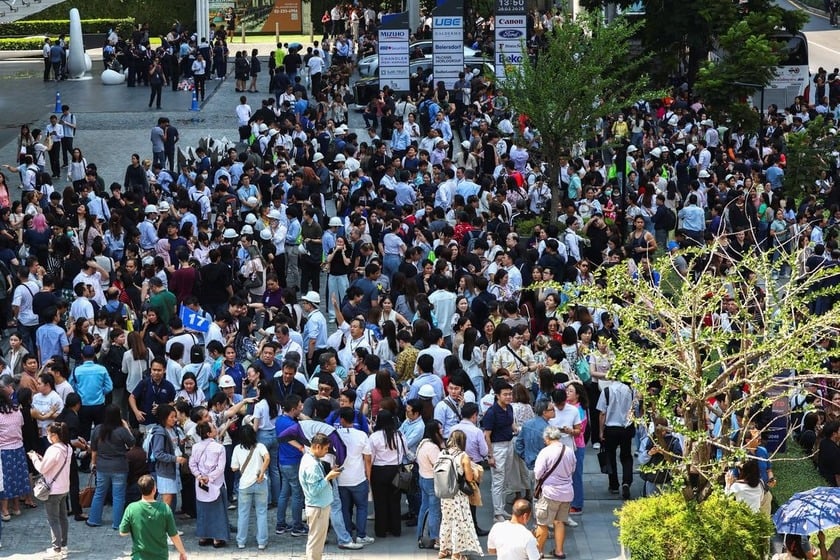
Tourists flock out of a shopping mall in Thailand following last week's earthquake.
Prepare before the trip
Before departing, travelers should research their destination, including information on earthquake risks and safety guidelines. Governments and tourism agencies in many countries often provide information on natural disaster risks, safe areas, and earthquake response procedures. Additionally, registering with the embassy or consulate in the host country is crucial for receiving assistance in case of an emergency.
One of the most important steps is to prepare a compact emergency kit, including essentials such as a flashlight, spare batteries, a whistle, drinking water, dry food, a first-aid kit, and some cash. Many hotels in earthquake-prone areas provide these kits, but it's best for travelers to prepare their own in case of an emergency.
In addition, travelers should familiarize themselves with the emergency exit plan of their accommodation as soon as they check in. Knowing the emergency exits, stairwells, and safe areas in the hotel beforehand will help you react quickly if an earthquake occurs.
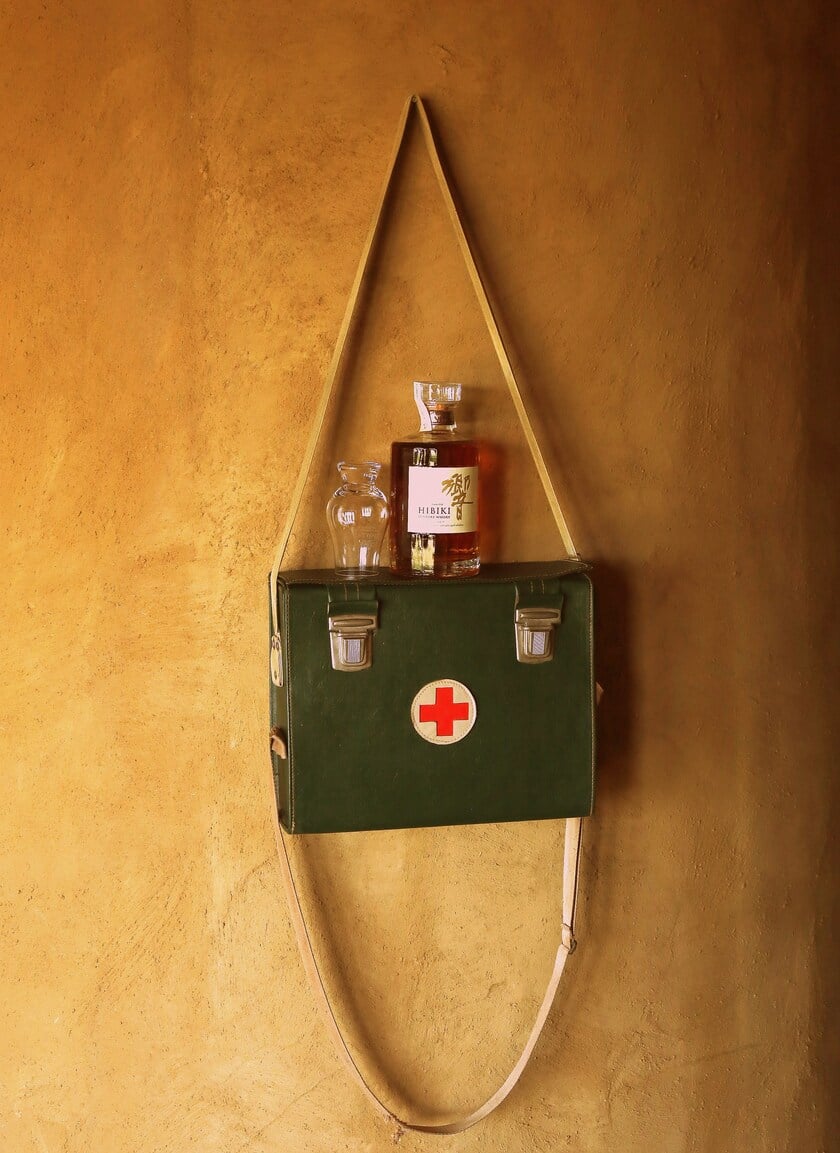
One of the most important steps is to prepare a compact emergency kit, including essential items.
Responding when an earthquake occurs.
If you are indoors or in a hotel when an earthquake occurs, the most important thing is to stay calm and quickly find safe shelter. The "Drop - Cover - Hold On" principle is recommended by safety experts worldwide. Specifically, you should crouch low to avoid falling, use your hands or objects like pillows to cover your head and neck, then find a stable object such as a table or bed to take shelter under. If there is no suitable shelter, kneel against a wall and cover your head with both hands. Avoid standing near windows, bookshelves, chandeliers, or objects that could fall.
If you are outdoors when an earthquake occurs, find an open area, away from buildings, power poles, trees, or billboards, as these could fall and cause danger. If you are driving, stop immediately in a safe area, away from bridges, tunnels, and power lines. Remain in your vehicle until the tremors stop.
In the event of an earthquake while you are near the coast, move immediately to higher ground to avoid the risk of a tsunami. Many earthquake-prone areas have tsunami warning systems, so listen to announcements from local authorities for appropriate action.

When tremors occur, crouch low to avoid falling, use your hands or objects like pillows to cover your head and neck, then find a stable object such as a table or bed to take shelter under.
Handling the aftermath of an earthquake.
After the tremors stop, check for injuries to yourself and those around you. If anyone is injured, administer basic first aid and seek medical assistance. Absolutely do not use the elevator to exit the building, as the electrical system may be damaged, trapping you inside. Use the stairs and exit cautiously.
An important note is that you should not light any matches or use any electrical appliances immediately due to the risk of gas leaks leading to fires and explosions. If you smell gas, open a window, leave the area immediately, and notify the authorities.
If you are trapped under rubble, try to stay calm and conserve energy. Cover your mouth with a towel or shirt to avoid inhaling dust, then make noise by tapping on pipes, walls, or surrounding objects to signal your location to the rescue team. Only shout when absolutely necessary to avoid exhausting yourself and inhaling too much dust.
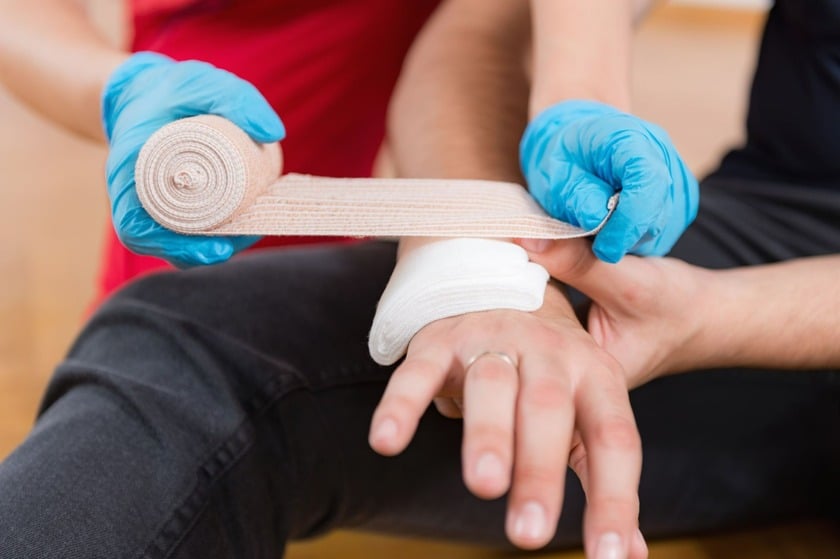
If someone is injured, administer basic first aid and seek medical assistance.
Preparing in advance and understanding how to respond during an earthquake is crucial for travelers, especially those visiting high-risk areas. By thoroughly researching your destination, carrying an emergency kit, understanding safety principles, and knowing how to remain calm in dangerous situations, you can protect yourself and help others in an emergency. Always prioritize safety for a fulfilling and safe trip.

 VI
VI EN
EN



